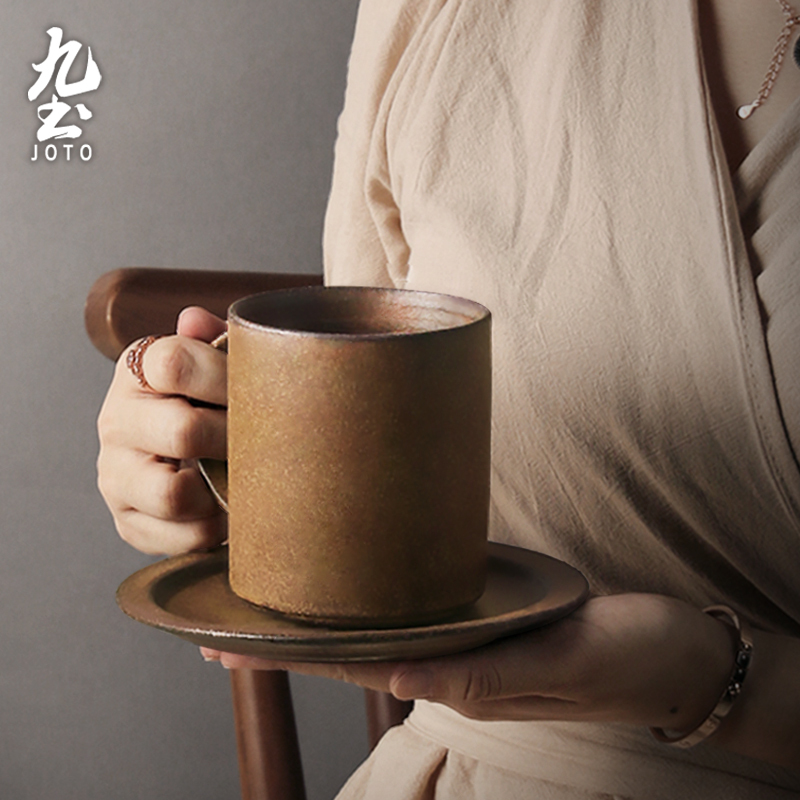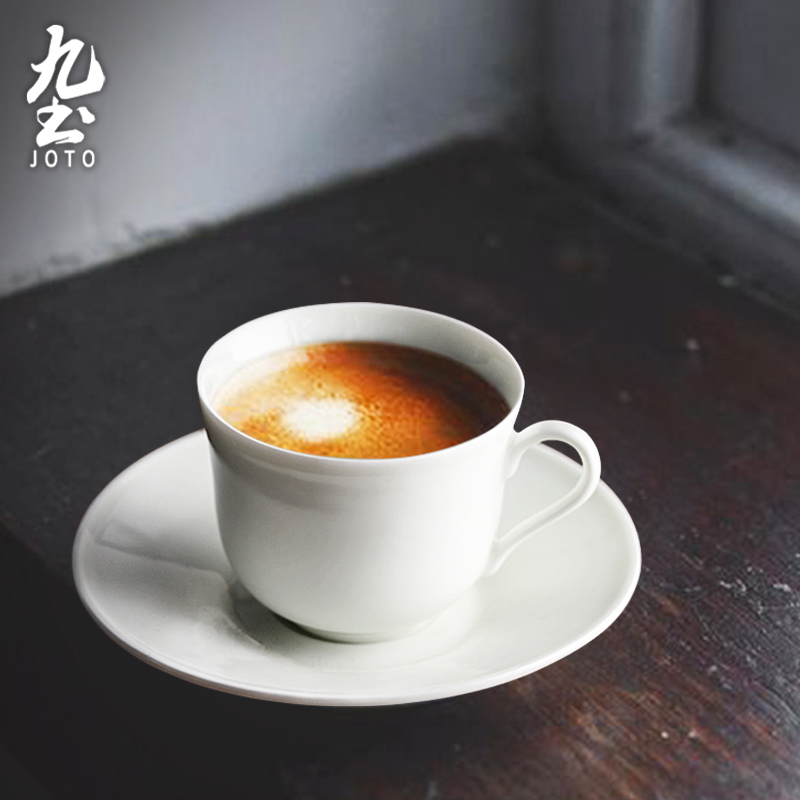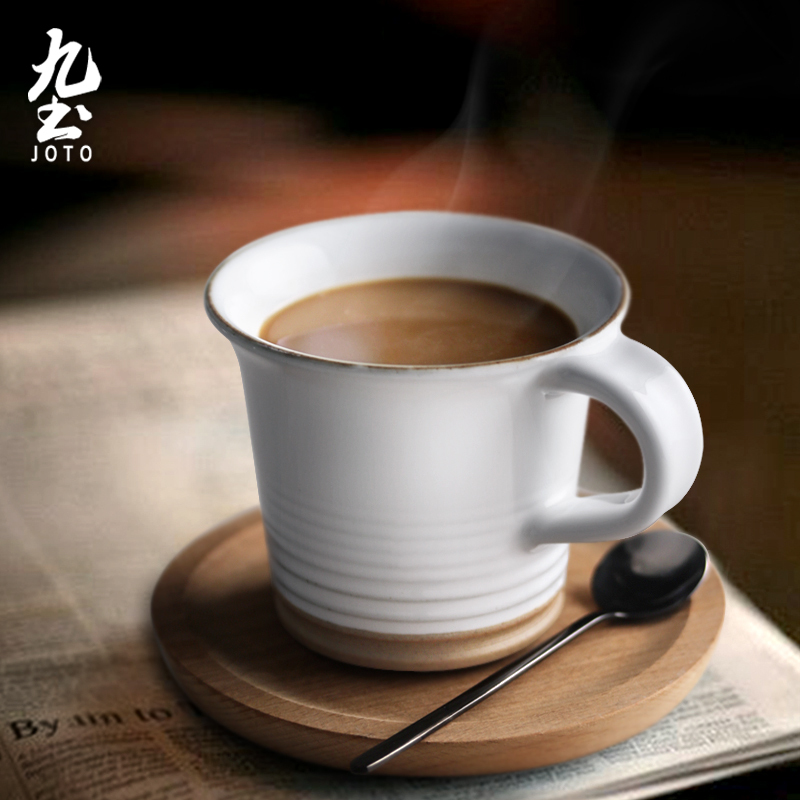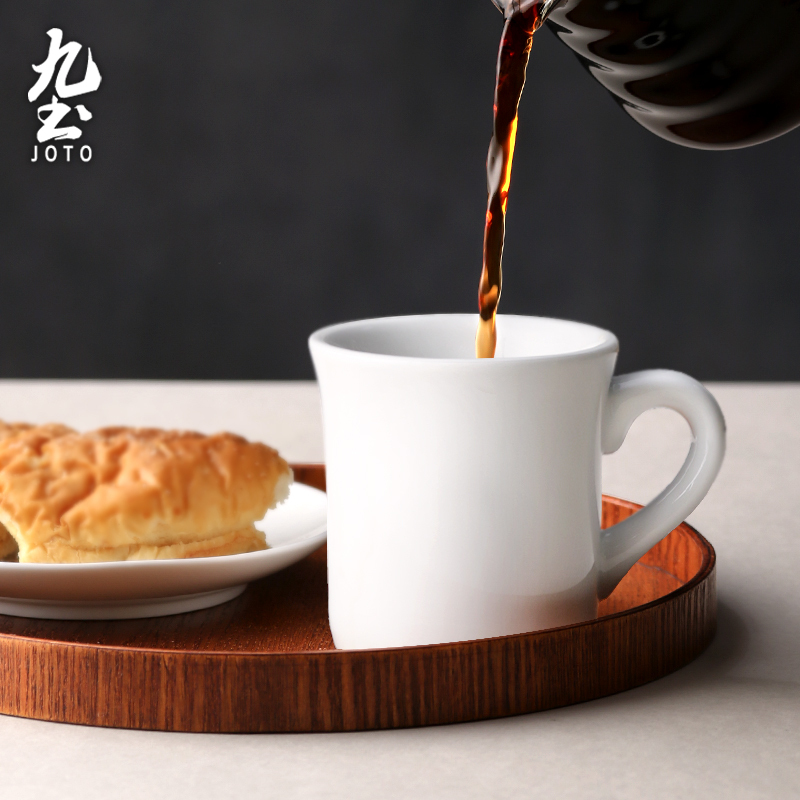[JOTO Mug Recommendation]
Have a Heart That Can Hold Emotions—and Offer Care
When I was younger, I treated songs as mere background noise. “The Brightest Star in the Night Sky” by the Chinese indie band Escape Plan was played over and over in different places, and I would hum along without really listening. Until one day, my heart became so narrow—like a cramped alley—so crowded that even my own emotions couldn’t fit in. I couldn’t even cry. That night, the song floated into my room:
“I pray to have a transparent soul and eyes that know how to cry.”
And suddenly, I realized what I lacked wasn’t comfort from others, but a heart spacious enough to contain everything.That song indeed comes from Escape Plan’s album The World, and has been covered by countless singers over the years. Perhaps what makes it so moving is that it quietly calls us back—to the heart itself.

【Product Recommendation】JOTO Japanese-Style Vintage Kiln-Glazed Coffee Cup & Saucer_CFR0082
To be spacious doesn’t mean to swallow everything whole—it means making space: allowing joy and sorrow to coexist, giving yourself permission to laugh today and cry tomorrow, without rushing to judge either.
To be transparent doesn’t mean exposing yourself to every gaze—it means seeing clearly: seeing where your emotions come from and where they are going; seeing your real needs instead of being pulled by expectations.
When my heart feels narrow, I imagine an alley that only one car can pass through—every emotion scrapes against another, noisy and suffocating. When my heart widens, it becomes a riverside road with a turnaround lane—anxiety can pull over, sadness can move slowly, joy doesn’t have to speed ahead. Transparency is like a freshly cleaned window: it doesn’t have to dazzle, it just lets the light in and allows you to see the sky outside.

【Product Recommendation】JOTO Handcrafted Ceramic Coffee Cup & Saucer Set_CFR0083
To care for others, you must first have a self that feels safe and settled.
Here are three small practices I return to when I feel stuck: Name your emotions. Gently say to your heart’s ripples: “This is anxiety.” “This is guilt.” “This is the ache of not being seen.” Once emotions are named, they lose their power to haunt. Naming is not justification—it’s illumination. Allow flow. Tears are not weakness; they are the heart’s drainage system. Replace “Not crying = strong” with “Daring to cry = honest.” Often, what narrows our heart is blockage; once emotions flow through, the chest becomes breathable again. Write and breathe. On paper, jot down three lines: “How my body feels right now.” “The loudest thought in my head.” “One small thing I can do at this moment.” Then take three slow breaths—inhale for 4 counts, hold for 2, exhale for 6. These few minutes won’t solve everything, but they will pull you back from the edge of chaos.
Letting your heart expand is never a one-time victory—it’s a quiet, repeated choice: choosing understanding over self-criticism, choosing rest over forced endurance. When you start treating yourself this way, you’ll find that even the heaviest burdens begin to find their place.

【Product Recommendation】JOTO Japanese-Style Handcrafted Rough Pottery Coffee Cup_CFR0084
A transparent heart’s next step is “making others seen.”
We often think comforting someone means saying something wise, but most of the time, people simply want to be seen and held.Try transforming care into four gestures:
Pause: Stop what you’re doing and give your full attention. The true cost of care isn’t words—it’s focus. Listen: Paraphrase what you hear, e.g. “I hear that you feel scared and tired.” This isn’t a script—it tells them their feelings are safely held in your heart. Ask: Don’t rush to “teach.” Ask, “How can I help?” Some need practical support, others need company. Asking makes your kindness precise. Be there: Real care is not a one-time act but an ongoing presence. A message, a glass of water, a simple “I’m here”—often, that’s enough.
Care isn’t rescue, and it’s not making decisions for others. True care is walking alongside them, within the pace they can bear. This kind of companionship turns no one into a burden, and no one into a savior—it simply builds a bridge of safety between hearts.

【Product Recommendation】JOTO Candy-Colored Mug Set_CFR0089
Those with “eyes that can cry” often have soft hearts—and soft hearts tire easily. If you’re someone who shields others from the wind, don’t forget to shield yourself, too.
Boundaries are not cruelty; they are what keep love sustainable. You can say:
“I’m not in the right headspace today, but I can be with you for an hour tomorrow.”
“I can help you find resources, but I can’t be here every day.”
When you clarify what you can and cannot do, your care becomes real—not exhausting.

【Product Recommendation】JOTO Japanese-Style Hand-Thrown Coffee Cup & Saucer_CFR0090
Adulthood teaches us this: true maturity isn’t about packing emotions into a suitcase—it’s knowing how to unpack and sort them. It’s not locking pain away—but knowing when to let it step out for air.
When we have a spacious heart, we stop denying or disguising emotion.
When we have a transparent heart, we reach out to others when they need it—and when we have the strength to give.
The world becomes a little brighter because of people like you.
May we all keep practicing holding space—first for all that we are, and then for a part of others.
And may we, when needed, become that small point of light for each other.
When the night feels dark, it’s because you and I still choose to shine—and that’s how we find our way.
See more products on our official site: https://www.jotomall.com/







